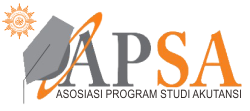Focus and Scope
Riset Akuntansi dan Keuangan Indonesia intended to be a medium for the dissemination of research results and exchange of scientific works Indonesia among academics, practitioners, regulators, and the public. Research in Accounting and Finance Indonesia covering a variety of research approaches, namely quantitative, qualitative and mixed methods. Research in Accounting and Finance Indonesia focusing on various themes, topics, and the accounting and financial aspects, including (but not limited) to the following topics:
- Public sector accounting
- Management accounting
- Islamic accounting
- Financial management
- Auditing
- Corporate Governance (Corporate Governance)
- Behavioral Accounting (Including Ethics and Professionalism)
- Accounting Education (Ethics)
- Taxation
- Theory of Investment and Capital Markets
- Accounting Banking and Insurance
- Accounting information system
- Sustainability reporting (Sustainability Reporting)
Determination of the article published in Research in Accounting and Finance Indonesia through a blind-review process by the editors and reviewers to consider the relevance and contribution of articles to the development of the profession and accounting practices as well as the fulfillment of the basic requirements of journal publications. Editors and reviewers subsequently provide constructive feedback and evaluation results to the author of the article.
Guidelines for Writing ArticlesGeneral requirement:
- Articles in the form of research, thinking, scientific analysis, or the study of the theory in the field of accounting and finance.
- Articles are not being submitted to journals / other publications and has never been published in the journal / other publications.
- Articles posted to include the author's name, institution and e-mail address. Articles written in the format of Microsoft Word 2007 and 2010.
- Articles written should be based on the template.
- Editor reserves the right to edit the grammar and spelling of the text contained without reducing or changing the intent of writing.
Publication costs
Research in Accounting and Finance Indonesia is the publication of journals that are not profit-oriented. Therefore, the costs for the publication process is as follows:
- Articles shipping costs 0 IDR (0 USD)
- A management fee for the publication of articles received 1.000.000 IDR (100 USD)
Section Policies
Articles
Peer Review Process
Each article will be reviewed by a minimum of two (2) people peer reviewer. Business journal ensures that every process of review, the author does not know who his reviewer. The time that would be required for the review is one week after the article is accepted by the reviewer.
Publication Frequency
Riset Akuntansi dan Keuangan Indonesia publish three issues a year every April, September and December for each volume.
Open Access Policy
This journal provides immediate open access to its content on the principle that making research freely available to the public supports a greater global exchange of knowledge.
Archiving
This journal utilizes the LOCKSS system to create a distributed archiving system among participating libraries and permits those libraries to create permanent archives of the journal for purposes of preservation and restoration. More...


















